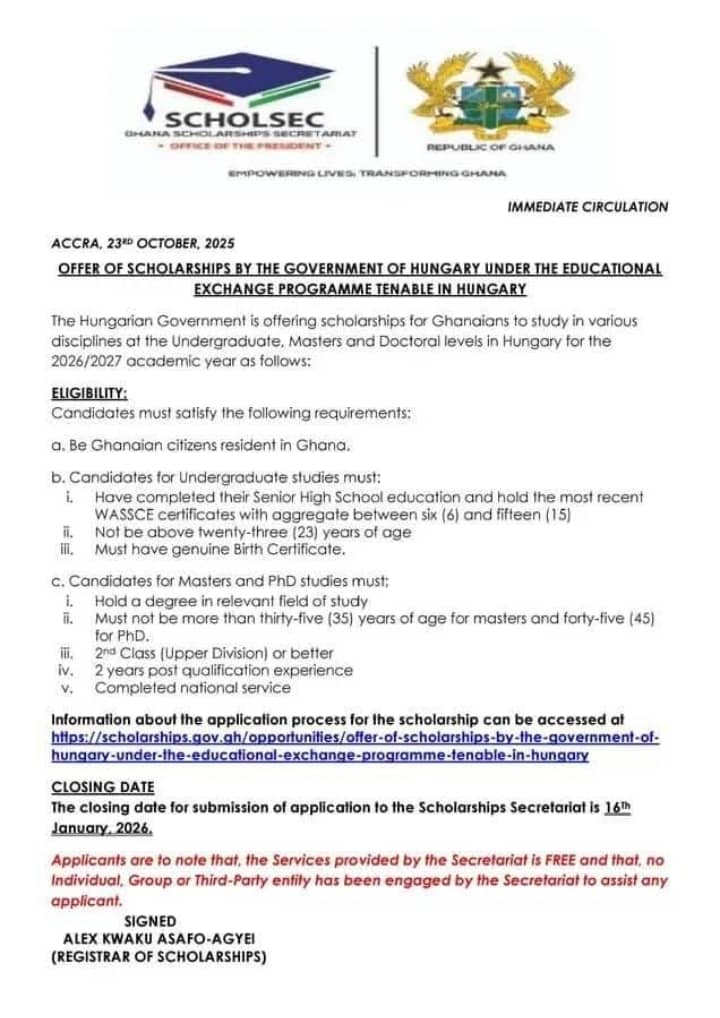
Time to Overhaul the BECE? Educationists Call for Reform to Align with Standard-Based Curriculum
Experts Urge Shift from Norm-Referenced to Criterion-Based Assessment
Two prominent educationists—Professor Kwasi Opoku-Amankwa (former Director-General of GES) and Dr. Peter Anti Partey (Executive Director of IFEST-Ghana)—have called for an immediate review of the Basic Education Certificate Examination (BECE). They argue that the current assessment model is out of sync with Ghana’s standard-based curriculum, urging a complete overhaul to reflect modern learning goals.
Why the BECE Needs Reform
1. Mismatch Between Curriculum and Assessment
-
The BECE currently uses the stanine system, a norm-referenced assessment that ranks students against each other rather than measuring mastery of learning standards.
-
Prof. Opoku-Amankwa explains:
“Standard-based assessment is criterion-referenced, evaluating performance against pre-defined learning goals. The stanine system doesn’t show if students have truly understood the content—it just ranks them.”
2. BECE’s Inability to Measure Competency
-
Dr. Partey argues that the BECE is “incompetent” in assessing the standard-based curriculum:
“The BECE was designed for the old objective-based curriculum. Now, we have a standard-based system, yet we’re still using an outdated assessment model. How do we know if students are truly meeting competencies?”
3. Calls for Diagnostic Testing Instead
-
Prof. Opoku-Amankwa suggests replacing subject selection with diagnostic testing:
“Students shouldn’t just choose subjects. Assessments should reveal their proficiency levels, guiding them into the right programmes based on their strengths.”
WAEC’s Counter-Argument: BECE Still Relevant
The West African Examinations Council (WAEC) disagrees, insisting the BECE remains useful but needs minor adjustments.
-
John Kapi (WAEC Head of Public Relations) defends the exam:
“BECE isn’t just for placement—it assesses learning outcomes. We’ve already shifted from rote memorization to critical thinking and application-based questions, aligning with the standard-based curriculum.”
-
WAEC claims recent modifications now emphasize:
Problem-solving over recall
Competency-based evaluation
Real-world application of knowledge
The Way Forward: Urgent Review Needed
Both experts agree: Ghana cannot keep using an old assessment system for a new curriculum.
Dr. Partey’s Recommendations:
-
Full reform of BECE to a criterion-referenced test
-
Alignment with the Pre-Tertiary Assessment Framework
-
No more delays—changes should happen before the next curriculum review
Prof. Opoku-Amankwa’s Vision:
-
Diagnostic assessments to guide student placement
-
Clear proficiency benchmarks instead of fixed grading curves
Final Thoughts: Time for Change?
Ghana’s education system has evolved—but is assessment keeping up? With the standard-based curriculum in place since 2019, the BECE’s norm-referenced model may no longer serve its purpose.
Should the BECE be scrapped entirely? Or can WAEC’s proposed tweaks bridge the gap?
Let’s discuss! Drop your thoughts in the comments.
Key Takeaways:
✔ BECE’s stanine system ranks students but doesn’t measure true competency.
✔ Standard-based curriculum requires criterion-referenced testing.
✔ WAEC insists BECE is still relevant but admits some adjustments are needed.
✔ Experts demand urgent reform—possibly replacing BECE with diagnostic assessments.
For more updates, click here: https://seekersconsult247.com/?p=737&preview=true
Follow us on WhatsApp for more updates: https://whatsapp.com/channel/0029VaCyYGIFHWpx22L38a2K




